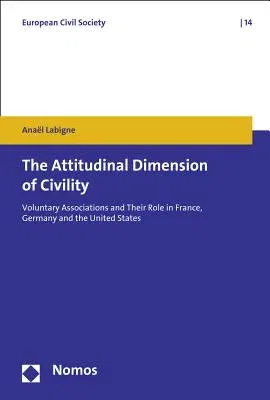Anael Labigne
(Author)The Attitudinal Dimension of Civility: Voluntary Associations and Their Role in France, Germany and the United StatesPaperback, 31 December 2014

Qty
1
Turbo
Ships in 2 - 3 days
In Stock
Free Delivery
Cash on Delivery
15 Days
Free Returns
Secure Checkout

Part of Series
European Civil Society
Print Length
254 pages
Language
English
Publisher
Nomos Verlagsgesellschaft
Date Published
31 Dec 2014
ISBN-10
3848711893
ISBN-13
9783848711895
Description
Product Details
Author:
Book Format:
Paperback
Country of Origin:
US
Date Published:
31 December 2014
ISBN-10:
3848711893
ISBN-13:
9783848711895
Language:
English
Location:
Baden-Baden
Pages:
254
Publisher:
Series: